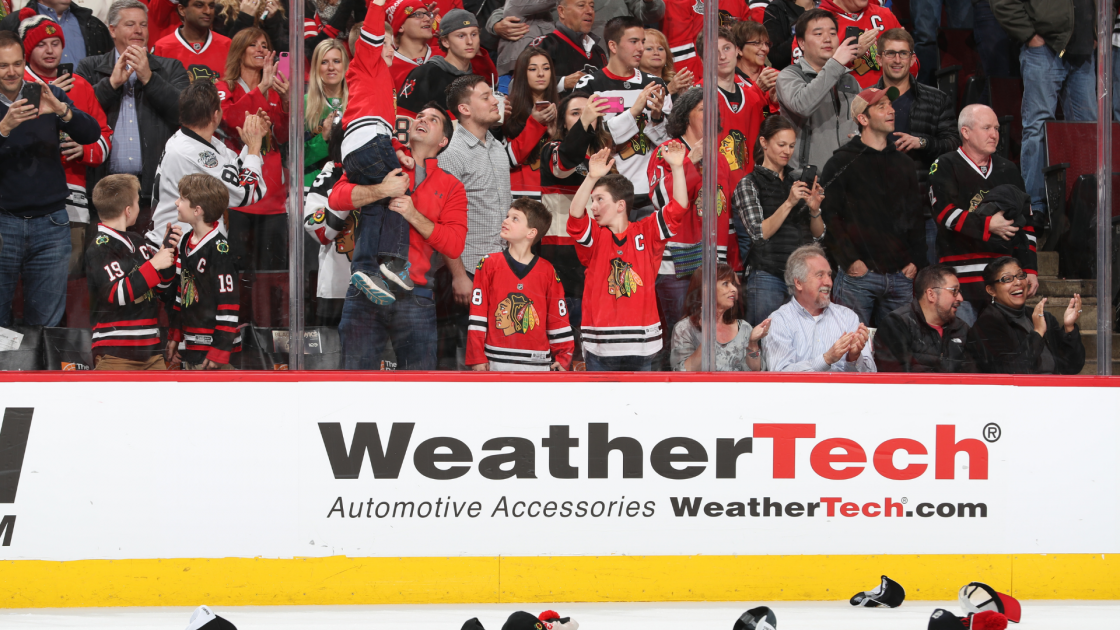Sponsorship is a discipline that is prone to trends, and many properties and brands are fast followers of one another. When something is working elsewhere, many properties will try to put their spin on it with their audience and local partner. Since brands are simultaneously talking to multiple properties and vice-versa, certain concepts and ideas can permeate the industry before suddenly disappearing because they are no longer novel. Reflecting on changes over the past five years, here are a few takeaways:
Properties continue to seek new ways to intersect with fans and prospective fans at different points in their days and lives.
No more logo slap
Brands are quick to tell you they don't want to slap their logo somewhere and call it a day. Salespeople are equally as quick to tell a prospective sponsor that they want a more meaningful partnership than a logo slap (while almost assuredly being quite content if that were the outcome!). But ultimately, we're telling one another that, while we agree that live entertainment with a captive audience allows a brand placement to resonate, we strive for integration beyond that placement that reinforces what the consumer is seeing on screen and allows for more storytelling.
Lifestyle Immersion
Properties continue to seek new ways to intersect with fans and prospective fans at different points in their days and lives, which in turn opens up more opportunities for non-endemic brands to fit an asset and new ways to integrate a sponsor into content organically. Similar to the point about "no more logo slap," this allows for authenticity for both the brand and the property. A brand can see it as a more targeted and natural extension of what they're already doing. A property can leverage the brand to create added value to attract new fans by helping the migration from a current aspect of that fan's life to include more awareness/support of the property.
Community Impact
Properties can illuminate the work corporations are already doing in the community. Additionally, they can provide turnkey programs at a lower inherent cost than other organizations because of the equity the property has built in the community. Therefore, there is a growing trend for companies, particularly those who are sponsoring a hometown property, to expect a community relations initiative within their asset mix. Additionally, as properties have amplified their roles in their communities, they are mutually invested in having sponsors join them in these endeavors to make the work more meaningful, productive, and less financially burdensome.
Technology
Technology is now part and parcel of the fan experience. Brands are undoubtedly aware of this and want to know how they can integrate into the most engaging technology fans use. Technology companies also want to use the properties to showcase their capabilities – these partnerships are far more strategic than a marketing play and often come with different structures but are very important to the overall sponsorship landscape. The difficult piece for the property is knowing where to invest your resources and commitments to do something with staying power.
With the number of places to reach a consumer decreasing (i.e., only their smartphone), brands may once again be willing to pay for any form of consistent presence within that customer's life.
Measurement
I used to often hear about companies that wanted to appear bigger than they actually were. I haven't heard that very often over the past five years because nearly all marketing is measured appropriately to give a specific ROI. As a result, the sponsorship sales industry has had to increase the amount of measurement to help internal sell-through. Otherwise, it puts the marketing lead in a position that they can't gather the support they need to stop doing activities where they're currently having success. In response to the increased measurement, properties can price assets more appropriately. In the end, that makes it more difficult for the little guy to punch above its weight and appear bigger than they are, but for the rest of the industry, we're growing the pie because of the data supporting these purchasing decisions.
Access to information
SponsorUnited and its competitors do a tremendous job of providing necessary resources to sponsorship sales professionals. Sponsors also covet earned media, so press releases and social media have created a megaphone to tell the world of your latest sponsorship deal. It creates a much more competitive marketplace with everyone simultaneously becoming aware of a new prospective sponsor. It also feeds the cycle of imitation from which we're all desperately trying to differentiate.
With that, which of these will last for the next five years and which will fade away? I think what all of these have in common is a level of sophistication and maturation to the discipline and industry, so it's hard to foresee them going away. If I had to bet on one trend reversing, it would be brands reembracing their interest in logo placements. With the number of places to reach a consumer decreasing (i.e., only their smartphone), brands may once again be willing to pay for any form of consistent presence within that customer's life.
Conversely, I'd venture to say technology may be on the list until the end of time. As an experiential industry, there will continue to be more technology innovations to enhance and amplify the fan journey. And whenever something comes at a cost to a property, such as a tech investment, rest assured there is someone on the sponsorship team trying to offset it.
Greg
Greg Zinsmeister is the Director of Corporate Sponsorships for the Chicago Blackhawks. He is in his 13th season with the team; 11 in the sponsorship discipline after initially joining in ticket sales. He graduated from Indiana University with a major in Sports Marketing Management, later obtaining his M.B.A. from The University of Chicago Booth School of Business. He is a Founding Member of the Pro Sports Assembly, and he's also a mentor in theClubhouse. You can schedule a 1:1 call with him here.

